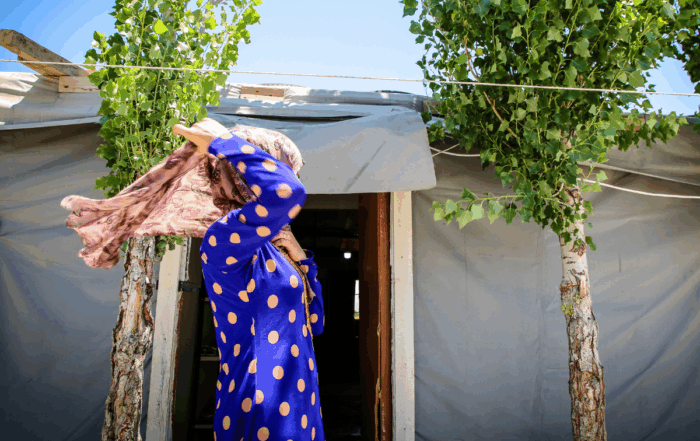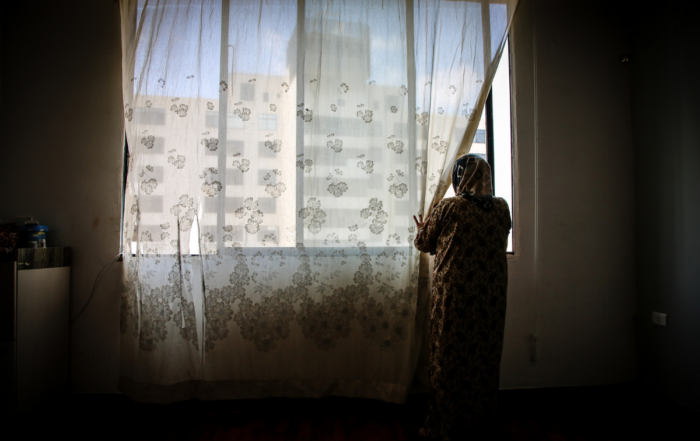WOMEN AND COMMUNITY: International women’s day
By Amy Reynolds
March 8, 2025

Women and community: International women’s day
By Amy Reynolds
March 8, 2025
Editor’s Note: The themes discussed in this article may be extremely difficult, so please exercise caution when reading.
“Learn to do right; seek justice. Defend the oppressed. Take up the cause of the fatherless; plead the case of the widow.” – Isaiah 1:17
On International Women’s Day, we celebrate the ways that women around the world and across history have changed the story of humanity for the better. But while we rejoice in their significance, it’s also essential to remember that around the world, women continue to suffer disproportionately from acts of violence. Issues include female infanticide, female malnourishment, alarming rates of domestic and sexual abuse, sex trafficking, rape as a war crime, lack of consent to marriage, and poor maternal health.
Although exposure to gender-based violence varies across the globe, women everywhere are affected by its existence. A college woman finds herself aware of potential sexual assault and becomes extra vigilant about being out in the evening, altering plans when she’s walking alone at night. A young professional decides not to take an internship because of the late hours, not to commute via public transportation to a job further away, and not to work at a firm where she would be an assistant to a male supervisor. A girl living in a gang-controlled neighbourhood forsakes going to school to avoid having to walk or take the bus along an unsafe route. A married woman assesses which abusive situation is the least costly and provides the most protection—an exercise in choosing the lesser of two evils. An asylum seeker discovers that the already weighty and arduous task of finding safety is compounded by knowing assault and abuse are likely along the way. She decides that the likely cost of personal violation to her body is worth the better life that choice yields for her children.
Those of us at work in the development space are aware of the high numbers of girls, women, and boys who have survived assault. They experience long-term physical, emotional, and social trauma, regardless of where they live. Yet even those who have not been directly violated or abused live with fear every day. Most girls and women are constantly weighing the cost of assault against economic, educational, or social opportunities. The threat of gender-based violence disempowers people and constrains their agency and ability to live lives of human flourishing and freedom.
Charities and churches strive to provide spaces of safety for those who have been oppressed and marginalized. We respond to the brokenness around us and pray for the peace of those who are hurting. We aim to do what is right and to walk alongside those in our community. We seek to defend the oppressed. But far too often, it seems that we accept the reality that this fear of violence, and the constant weighing of decisions based on the likelihood of violence, is an inexorable part of what it means to be a girl or woman.
The prophet Isaiah’s words call us to plead the case of the widow, take up the cause of the fatherless – and to bring light to the ways power imbalances harm the vulnerable. This appeal is part of Isaiah’s message to Judah to repent for the ways they have become a sinful nation and a people laden with iniquity (Isaiah 1:4). He tells the people God has had enough of burnt offerings (verse 11) and wants them to “trample my courts no more!” (verse 12)
What does it look like to repent of the unequal structures of our cities and our nations; of the harmful ways that our cultures fail to protect the vulnerable? What about the ways we create or exacerbate their conditions? How do we work in solidarity with those who have survived abuse, or alongside those who have perpetrated abuse and are now wanting to repent? As followers of Christ, we are called to plead, to take up the case, to advocate against laws and ideologies that disempower. Our purpose is not just to praise God, but to take up the task of dismantling structures that disempower the widow, the child, the woman in society as part of the spiritual task before us.
Complicated problems require complicated responses, and the beauty of the body of Christ is that charities, churches, and Christian communities can work together for shalom of our cities. For some, that may look like theological education to dismantle false ideas that justify gender-based violence as a way to keep order in a society. For others, it could mean helping churches hold perpetrators in their midst accountable. Still other may choose to support female political leaders whose experiences propel them to find governmental solutions to address inequity. As we seek to see Zion “redeemed by justice and those in her who repent” (Isaiah 1:27), we pray that God will help us to see what repentance of our cities and societies looks like, especially as we reflect on International Women’s Day. How may we be open to God’s restoration of our whole lives?
—Dr. Amy Reynolds is Associate Professor of Sociology at Wheaton College.
Read more about taking action against gender-based violence and download our reflection and advocacy guide today.
Editor’s Note: The themes discussed in this article may be extremely difficult, so please exercise caution when reading.
“Learn to do right; seek justice. Defend the oppressed. Take up the cause of the fatherless; plead the case of the widow.” – Isaiah 1:17
On International Women’s Day, we celebrate the ways that women around the world and across history have changed the story of humanity for the better. But while we rejoice in their significance, it’s also essential to remember that around the world, women continue to suffer disproportionately from acts of violence. Issues include female infanticide, female malnourishment, alarming rates of domestic and sexual abuse, sex trafficking, rape as a war crime, lack of consent to marriage, and poor maternal health.
Although exposure to gender-based violence varies across the globe, women everywhere are affected by its existence. A college woman finds herself aware of potential sexual assault and becomes extra vigilant about being out in the evening, altering plans when she’s walking alone at night. A young professional decides not to take an internship because of the late hours, not to commute via public transportation to a job further away, and not to work at a firm where she would be an assistant to a male supervisor. A girl living in a gang-controlled neighbourhood forsakes going to school to avoid having to walk or take the bus along an unsafe route. A married woman assesses which abusive situation is the least costly and provides the most protection—an exercise in choosing the lesser of two evils. An asylum seeker discovers that the already weighty and arduous task of finding safety is compounded by knowing assault and abuse are likely along the way. She decides that the likely cost of personal violation to her body is worth the better life that choice yields for her children.
Those of us at work in the development space are aware of the high numbers of girls, women, and boys who have survived assault. They experience long-term physical, emotional, and social trauma, regardless of where they live. Yet even those who have not been directly violated or abused live with fear every day. Most girls and women are constantly weighing the cost of assault against economic, educational, or social opportunities. The threat of gender-based violence disempowers people and constrains their agency and ability to live lives of human flourishing and freedom.
Charities and churches strive to provide spaces of safety for those who have been oppressed and marginalized. We respond to the brokenness around us and pray for the peace of those who are hurting. We aim to do what is right and to walk alongside those in our community. We seek to defend the oppressed. But far too often, it seems that we accept the reality that this fear of violence, and the constant weighing of decisions based on the likelihood of violence, is an inexorable part of what it means to be a girl or woman.
The prophet Isaiah’s words call us to plead the case of the widow, take up the cause of the fatherless – and to bring light to the ways power imbalances harm the vulnerable. This appeal is part of Isaiah’s message to Judah to repent for the ways they have become a sinful nation and a people laden with iniquity (Isaiah 1:4). He tells the people God has had enough of burnt offerings (verse 11) and wants them to “trample my courts no more!” (verse 12)
What does it look like to repent of the unequal structures of our cities and our nations; of the harmful ways that our cultures fail to protect the vulnerable? What about the ways we create or exacerbate their conditions? How do we work in solidarity with those who have survived abuse, or alongside those who have perpetrated abuse and are now wanting to repent? As followers of Christ, we are called to plead, to take up the case, to advocate against laws and ideologies that disempower. Our purpose is not just to praise God, but to take up the task of dismantling structures that disempower the widow, the child, the woman in society as part of the spiritual task before us.
Complicated problems require complicated responses, and the beauty of the body of Christ is that charities, churches, and Christian communities can work together for shalom of our cities. For some, that may look like theological education to dismantle false ideas that justify gender-based violence as a way to keep order in a society. For others, it could mean helping churches hold perpetrators in their midst accountable. Still other may choose to support female political leaders whose experiences propel them to find governmental solutions to address inequity. As we seek to see Zion “redeemed by justice and those in her who repent” (Isaiah 1:27), we pray that God will help us to see what repentance of our cities and societies looks like, especially as we reflect on International Women’s Day. How may we be open to God’s restoration of our whole lives?
—Dr. Amy Reynolds is Associate Professor of Sociology at Wheaton College.
Read more about taking action against gender-based violence and download our reflection and advocacy guide today.






